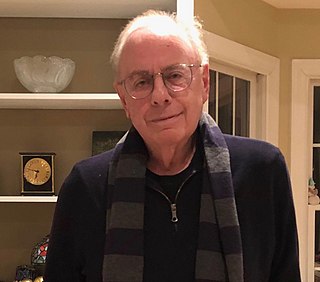A Quote by Stephen Sondheim
They all deserve to die. Even you, Mrs. Lovett Even I. Because the lives of the wicked should be made brief For the rest of us death would be relief.
Related Quotes
Do you not know that you are Eve? The judgment of God upon this sex lives on in this age; therefore, necessarily the guilt should live on also. You are the gateway of the devil; you are the one who unseals the curse of that tree, and you are the first one to turn your back on the divine law; you are the one who persuaded him whom the devil was not capable of corrupting; you easily destroyed the image of God, Adam. Because of what you deserve, that is, death, even the Son of God had to die.
We do not know whether it is good to live or to die. Therefore, we should not take delight in living, nor should we tremble at the thought of death. We should be equiminded towards death. This is the ideal. It may be long before we reach it, and only a few of us can attain it. Even then, we must keep it constantly in view, and the more difficult it seems of attainment, the greater should be the effort we put forth.
We are left with nothing but death, the irreducible fact of our own mortality. Death after a long illness we can accept with resignation. Even accidental death we can ascribe to fate. But for a man to die of no apparent cause, for a man to die simply because he is a man, brings us so close to the invisible boundary between life and death that we no longer know which side we are on. Life becomes death, and it is as if this death has owned this life all along. Death without warning. Which is to say: life stops. And it can stop at any moment.
No one wants to die. Even people who want to go to heaven don't want to die to get there. And yet death is the destination we all share. No one has ever escaped it. And that is as it should be, because Death is very likely the single best invention of Life. It is Life's change agent. It clears out the old to make way for the new.
Still, being fragile creatures, humans always try to hide from themselves the certainty that they will die. They do not see that it is death itself that motivates them to do the best things in their lives. They are afraid to step into the dark, afraid of the unknown, and their only way of conquering that fear is to ignore the fact that their days are numbered. They do not see that with an awareness of death, they would be able to be even more daring, to go much further in their daily conquests, because then they would have nothing to lose- for death itself is inevitable.
So to be sick unto death is, not to be able to die-yet not as though there were hope of life; no, the hopelessness in this case is that even the last hope, death, is not available. When death is the greatest danger, one hopes for life; but when one becomes acquainted with an even more dreadful danger, one hopes for death. So when the danger is so great that death has become one's hope, despair is the disconsolateness of not being able to die.
What I should like to find is a crime the effects of which would be perpetual, even when I myself do not act, so that there would not be a single moment of my life even when I were asleep, when I was not the cause of some chaos, a chaos of such proportions that it would provoke a general corruption or a distubance so formal that even after my death its effects would still be felt.
My dad and mom were more like World War II-era parents, even though it was the 1960s, because they were both born in the '40s. They were young adults before the '60s even happened, and married, and already having kids. But by the time we were adolescents in the '70s, the whole culture was screaming at parents, "You're a good parent if you're open with your kids about sex." They attempted to be open with us about sex, and it made them want to die, and consequently, it made us want to die.








































